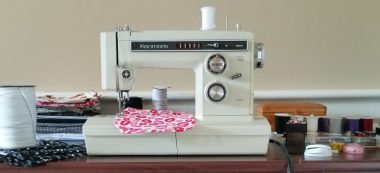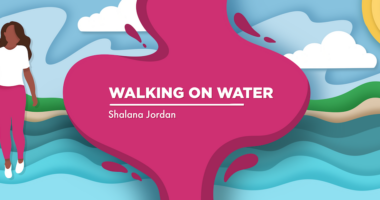Pandemic Protocols: With Chronic Illness, We’ve Been There, Done That

When society shut down at the onset of the COVID-19 outbreak last year, many healthy extroverts panicked. Their world changed instantly and drastically, and they had a hard time coping.
Welcome to our world
As a caregiver to someone with atypical hemolytic uremic syndrome (aHUS) for the previous four years, I was ready. The doomsday preppers had nothing on those of us living with a rare and chronic condition. We were not just prepared, we were practiced.
Since my husband’s diagnosis, we have become germophobes, and have stockpiled food and medicine, socially distanced everywhere, and limited our travel. Ronald and I were armed with hand sanitizer when we went out; when flu season came around, we stayed in. It turns out we were ahead of our time.
Hard for the healthy, relief for the recluses
In many ways, the pandemic protocols made life easier for us. We already avoided busy times at grocery stores. Now we took advantage of designated hours for the health-compromised customers to shop. No longer did we have to buy and carry hand sanitizer with us; touchless dispensers and disposable wipes appeared everywhere.
Our studio work requires collaboration with clients and craftsmen. I had always tried to accomplish this as much as possible via phone, email, and overnight deliveries. Under COVID-19 restrictions, the inevitable travel for important meetings and conferences was no longer possible. Clients and organizations canceled everything and signed us up for video calls on their accounts.
In addition to making our life more convenient and affordable, these changes brought a cultural change in attitude. Personally, we used to be considered antisocial; now we were doing our bit to save the world. Professionally, we had been difficult to schedule; now we were efficient. What had been eccentric became virtuous, now that we were all in this together.

Survival skills, 2020: sewing face masks. (Photo by Annie Dixon)
Sheltering in place
Some couples dreaded the thought of hibernating together while society locked down. My husband and I had been living, working, and traveling together for 25 years when he was diagnosed with aHUS. Since then, we had convalesced and adjusted together. For us, the COVID-19 restrictions simply meant fewer invitations to decline, with no excuses necessary.
Living with chronic illness had already imposed a lot of downtime at home on us. He sketched and played the piano. As his strength came back, he took up the accordion again. I caught up on some reading and pulled out the sewing machine and my fabric stash. When the pandemic hit, we had the necessary survival skills: He entertained us and I stitched face masks.
Returning to normal
The COVID-19 protocols gave everyone a temporary experience with the limitations of our way of life. As the Centers for Disease Control and Prevention’s guidelines change, healthy people will once again venture out into the world. They will travel, congregate, and celebrate. Salespeople will shake hands, friends will hug, and grandparents will kiss the kids.
We will hang back a bit, as we are still cautious. aHUS patients and caregivers know any infection has the potential to trigger a dangerous immune response. So, we will prudently keep our distance and keep our gatherings small, just as we did prior to COVID-19.
For a while there, we were all living with the threat of a disease of unknown cause and effect. We had no clinical studies, vaccine, or sure cure, so we took care of ourselves and checked in on each other. On our faces we wore a symbol of our shared anxiety and concern, both of which may dissipate as the masks disappear.
The “normal” that we in the rare disease community return to now may be one of isolation. But if there is a silver lining to the cloud that has hung over the past year, it is that we have a reference point for discussion. Perhaps we will be more willing to explain our situation to our hale and hardy friends and colleagues. And they will be more likely to understand.
***
Note: aHUS News is strictly a news and information website about the disease. It does not provide medical advice, diagnosis, or treatment. This content is not intended to be a substitute for professional medical advice, diagnosis, or treatment. Always seek the advice of your physician or other qualified health provider with any questions you may have regarding a medical condition. Never disregard professional medical advice or delay in seeking it because of something you have read on this website. The opinions expressed in this column are not those of aHUS News or its parent company, Bionews, and are intended to spark discussion about issues pertaining to aHUS.







francesca bianchi
Beautiful article, thank you Annie for your brilliant analysis!
Annie Dixon
Thank you, Francesca! I appreciate you taking the time to read and comment.